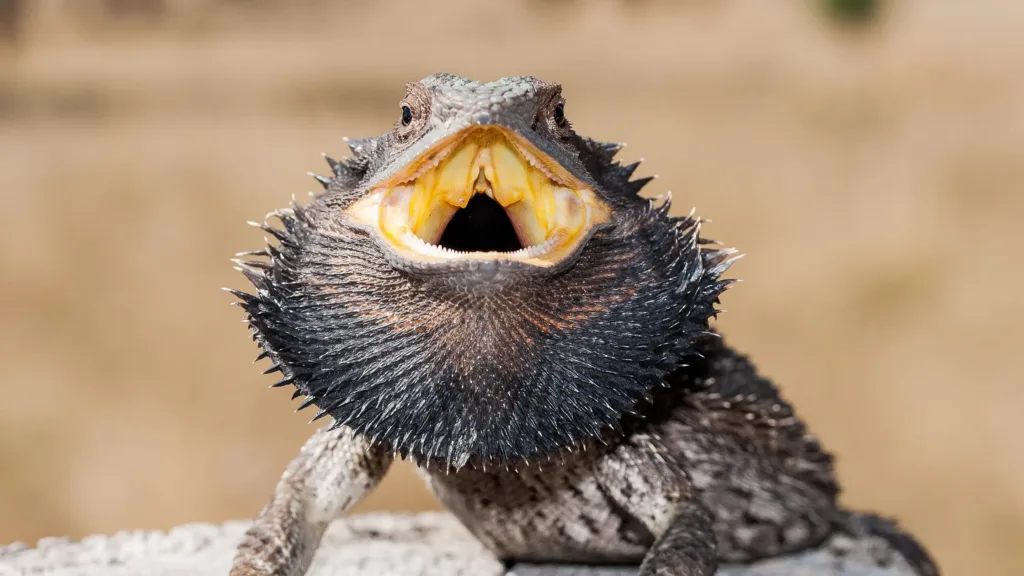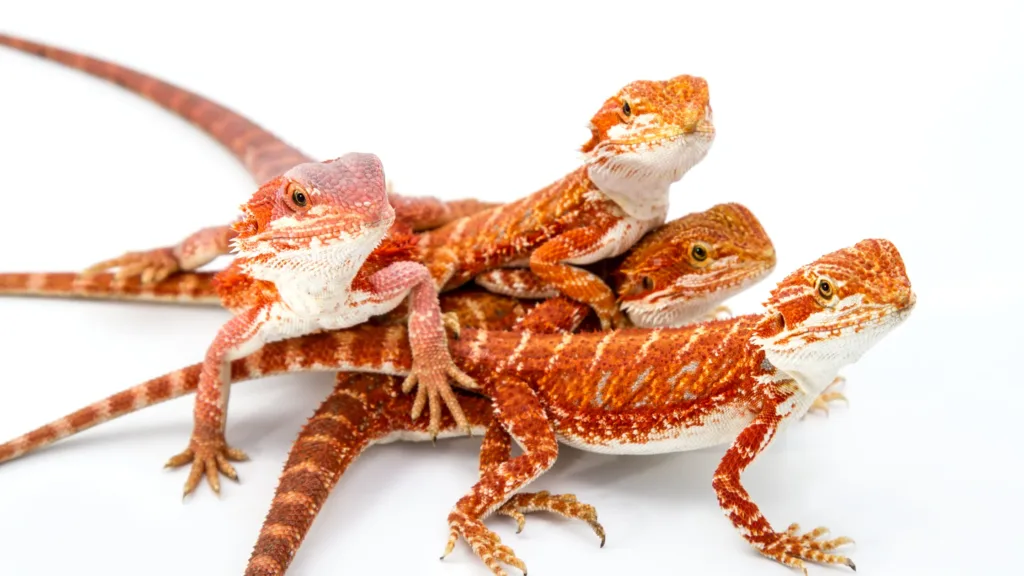Probiotics is important for every living being. Both humans and reptiles including bearded dragons need probiotics in their diet. That’s because probiotics improve intestinal health and most importantly reduce the risk of many diseases. Some human food that contains probiotics include yogurt, buttermilk, cottage cheese, and miso soup. But is it possible for a bearded dragon to eat these foods? In other words, can your bearded dragon eat human probiotics? Because cats and dogs can safely eat human probiotics including yogurt.
But unfortunately no. Bearded dragons can’t eat human probiotics. That’s because humans have enzymes that can process probiotics present in yogurt in their bodies. But bearded dragons don’t have enzymes that can process human probiotics. So, it’s best for your bearded dragon to not eat human probiotics.
What to Do If Your Bearded Dragon has Eaten Human Probiotics?
Accidents happen. You might give your bearded dragon some human probiotics. The problem is that bearded dragons can become sick really quickly. That’s because they have zero enzymes that can digest human probiotics or yogurt in their diet. So, in case your bearded dragon has accidentally ingested yogurt, don’t forget to do the following:
- Stay Calm. Don’t panic.
- Call your vet.
- Try to give water to your bearded dragon. This will ensure that the food that they have eaten gets out of their body.
- See if your bearded dragon is doing anything abnormal.
What will Happen if Your Bearded Dragon Accidently Eats Human Probiotics?
Human probiotics including yogurt, milk and cheese have lots of benefits for bearded dragons. But unfortunately, human probiotics aren’t as beneficial for bearded dragons as they are for humans. In case your bearded dragon has accidently ingested human probiotics, they will have the following signs:
- Bloating
- GI tract problems
- Upset stomach
- Diabetes
- Liver issues
- Cardiovascular problems
- Obesity
In short, there are no benefits of giving human probiotics to bearded dragons. What’s worse is that human probiotics can also take bearded dragon’s life.
Do Bearded Dragons Need Probiotics?
Yes. Bearded dragons do need probiotics. Like in humans, probiotics help keep bearded dragons stay away from intestinal diseases. In fact, when an adequate amount of probiotics is ingested by a bearded dragon, then their gut health is also maintained. But because bearded dragons can’t eat food that is beneficial for humans because it contains probiotics, they must eat probiotics mixture that’s normally available in pet stores. That probiotics mixture also contains other nutrients that give energy to bearded dragons.
What is Toxic to Bearded Dragons?
Apart from food that is beneficial , there are lots of things that bearded dragons can’t eat. For instance, in vegetables, bearded dragons can’t eat onions, chives, mushrooms, garlic, rhubarb, eggplants and avocados. That’s because all these veggies are high in oxalates. Bearded dragons shouldn’t eat anything that’s rich in oxalates. The reason is when they have a high amount of phosphorus in their body, then not enough calcium is left for absorption in their bones. Other veggies that are toxic to bearded dragons because they are high in acid are tomatoes, lemons, pineapples and limes. In bugs, bearded dragons can’t eat wild bugs, lady bugs, box elder bugs, fireflies, and fireflies.
How Can You Boost Immune System of a Bearded Dragon?
Like humans, bearded dragons must have a strong immune system so that in case bacteria or any virus attack them then they have the ability to fight back. Good thing is that antioxidants can improve bearded dragon’s immune system. Now, from kales, spinach, red bell peppers to peaches, every fruit has some nutrients that strengthen bearded dragon’s immune system.
How to Ensure Your Bearded Dragon is Ingesting Probiotics?
Fortunately, human food that has probiotics isn’t the only food through which bearded dragons can ingest probiotics. Food including clover, miscanthus grass, and dandelion greens are rich in probiotics. Apart from this, there are several companies that sell probiotics for bearded dragons.
When to Give Probiotics to Bearded Dragons?
Well, it’s a legit question: when should your bearded dragon eat probiotics? There are few signs to look out for. Signs including digestive issues, such as loose stool means there is a microbial imbalance that must be solved. Further, your vet may recommend adding probiotics in bearded dragon’s diet when:
- They have been given antibiotics.
- They have just been moved to a new location in your house.
- There diet has been changed.
- They are stressed. Keep in mind that there are multiple signs that shows that your bearded dragon is stressed.

What are some Good Probiotics for Bearded Dragons?
Keep in mind that before you add anything in a bearded dragon’s diet, always ask your vet for advice. Now, sure probiotics are beneficial, it’s just not possible for all bearded dragons. That’s because sometimes some other alternative treatments can also work best. Your vet will tell you what probiotics supplement is best. Bearded dragon’s probiotics come in different forms including:
- Powders
- Pills
- Pastes
Regardless of the probiotics formula that you and your vet decide on, make sure you know all the information including how much probiotics your bearded dragon needs and how often to give them probiotics. Further, it’s really important that you follow your vet’s recommendation as well as the probiotics product information so that nothing bad happens to your bearded dragon.
Should You Give Probiotics to Juvenile Bearded Dragons?
Sometimes, bearded dragons can go through some digestive issues when they are growing up. Maybe you have changed the location of their enclosure or modified their diet as per your vet’s recommendation. But what’s important for you to know here is that all this can make juvenile bearded dragons feel unsettled. Further, juvenile bearded dragons must have a well functioning gut to grow and thrive. This is where probiotics will be helpful. That’s because probiotics help correct microbial imbalance in juvenile’s bearded dragon digestive system. But again, if you’ve noticed that your juvenile bearded dragon is facing digestive issues. It’s important to first talk to the vet.

Conclusion
No, your bearded dragon should not eat human probiotics. That’s because this probiotics is only beneficial for human beings as it contains only those nutrients that humans should eat. But does this mean bearded dragons should not eat probiotics? Well, no. Bearded dragons should eat probiotics. Probiotics helps maintain bearded dragon’s gut health.

